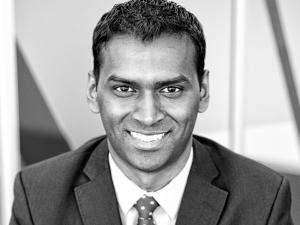
Water crises. Leadership battles. Accidental nuclear missile warnings. Raise your hand if, with everything going on, you overlooked what was happening at the World Economic Forum (WEF) in Davos this year.
The much-anticipated annual meeting of leaders generated less buzz than normal; understandably so if you consider how recent global events seemed to bring new meaning to the word "Januworry".
The theme of WEF 2018 was, fittingly enough, "Creating a shared future in a fractured world". As always, there were excellent insights for not just policymakers but anyone looking to lead in a digital future. Here's what stuck out this year.
The power of love
Forget Trump and his "America first!" speeches. The real stars of WEF were the forward-thinking leaders who questioned long-held beliefs around growth and economic development. Davos challenged us to rethink how we govern and do business.
Throughout the event, there was a sense that the time had come for greater accountability and responsibility towards every citizen. Salesforce CEO Marc Benioff called for more responsibility among tech and business leaders, emphasising the value of trust above all else.
Cyril Ramaphosa's much praised speech was frank about learning from past mistakes: "We looked at [the challenges] once again, as we've often done. But this time, what was different was that we said we need to address these challenges, but also address what we have been doing wrong because there have been things that we've been doing wrong ourselves."
Inclusivity has been a key feature of recent WEFs, and the 2018 gathering was equally concerned with the cultural and societal mindset we need to cultivate to reach that objective.
For Jack Ma, founder of Alibaba, the defining feature of successful leadership in the automation age is LQ - the IQ of love. "Google, Facebook, Amazon and Alibaba - we are the luckiest companies of this century. But we have the responsibility to have a good heart, and do something good."
It was Sharan Burrow, general secretary of the International Trade Union Confederation, who said it best, calling for "a movement where we globalise compassion and ensure a world in which no one is left behind".
is the fuel
It wouldn't be WEF without discussion about the cyber-powered elephant in the room - AI, automation and the future of work. With inclusivity one of the forum's biggest themes, it's no surprise that this year's discussion centred on more equitable strategies for upskilling and reskilling today's workforces.
Davos challenged us to rethink how we govern and do business.
Recent reports have pointed out that wide-scale automation may affect women more than men, and it's easy to see how an uncritical approach to skills development in South Africa might perpetuate our existing inequalities rather than reduce them.
WEF responded by proposing a data-driven approach to job transition; one that looks at not only collective redeployment, but also individual opportunities, personal desires and skills. The WEF report presented an overarching methodology, but the principles can be adapted to individual labour markets by plugging in localised sources of information on skills shortages, market demand and individual interest.
The methodology is useful, but it emphasises there's no one-size-fits-all approach to inclusive growth or skills development. The answer to Africa's transition into an automated age won't come out of Davos, but out of Joburg and Cape Town, Nairobi and Kigali. That's where the local data is.
"Data will be the raw material of the 21st Century," observed German chancellor Angela Merkel at Davos, and I couldn't agree with it more. If you're not actively exploring what skills you'll need in your organisation and industry in the next decade, you'll soon find yourself at a disadvantage.
What does success look like?
As I'm fond of telling business leaders and peers: what you don't know, you don't know. The data can only go as far as the objectives we're measuring them against, and those aren't always reflective of the needs of a truly inclusive digital economy. If we're going to work collectively to create a more compassionate world, we can't use the same yardsticks we always have.
One highlight to come out of Davos was the unveiling of a more inclusive metric for economic development that takes into account inequality, sustainability and other factors - rather than just GDP. The 2018 Inclusive Development Index assessed 103 economies on their growth and development, inclusion, and inter-generational equity for a holistic picture of socio-economic health.
So how does South Africa measure up? As might be expected, it's a mixed bag - plenty of potential with a number of gaps. We come in at 69th, improved from five years ago. Productivity and public finance are commendable, but the country still suffers from low employment and high inequality. It's nothing we don't already know, but a solid reminder of what barriers we face before achieving more inclusive growth and a more equitable society.
As the lights fade on Davos, and the budget looms closer, it's worth taking the aforementioned Cyril Ramaphosa's lead and revisiting your growth strategies against the metrics of success in the Fourth Industrial Revolution.
Are you embedding a culture of trust and accountability in your organisation? Is your Love IQ measuring up to your profit margins? Are you applying the analytics to learn from your mistakes and create more inclusive services?
About Lee Naik
Lee Naik was named one of LinkedIn's Top 10 Voices in Technology and is recognised as one of SA's leading digital and technology transformation experts. He is CEO of TransUnion Africa, where he leads a portfolio of businesses that help organisations make more informed decisions and consumers manage their personal information, leading to a higher quality of life.
Check out his Linked blogs and follow him on @naikl for his latest commentary.
Share